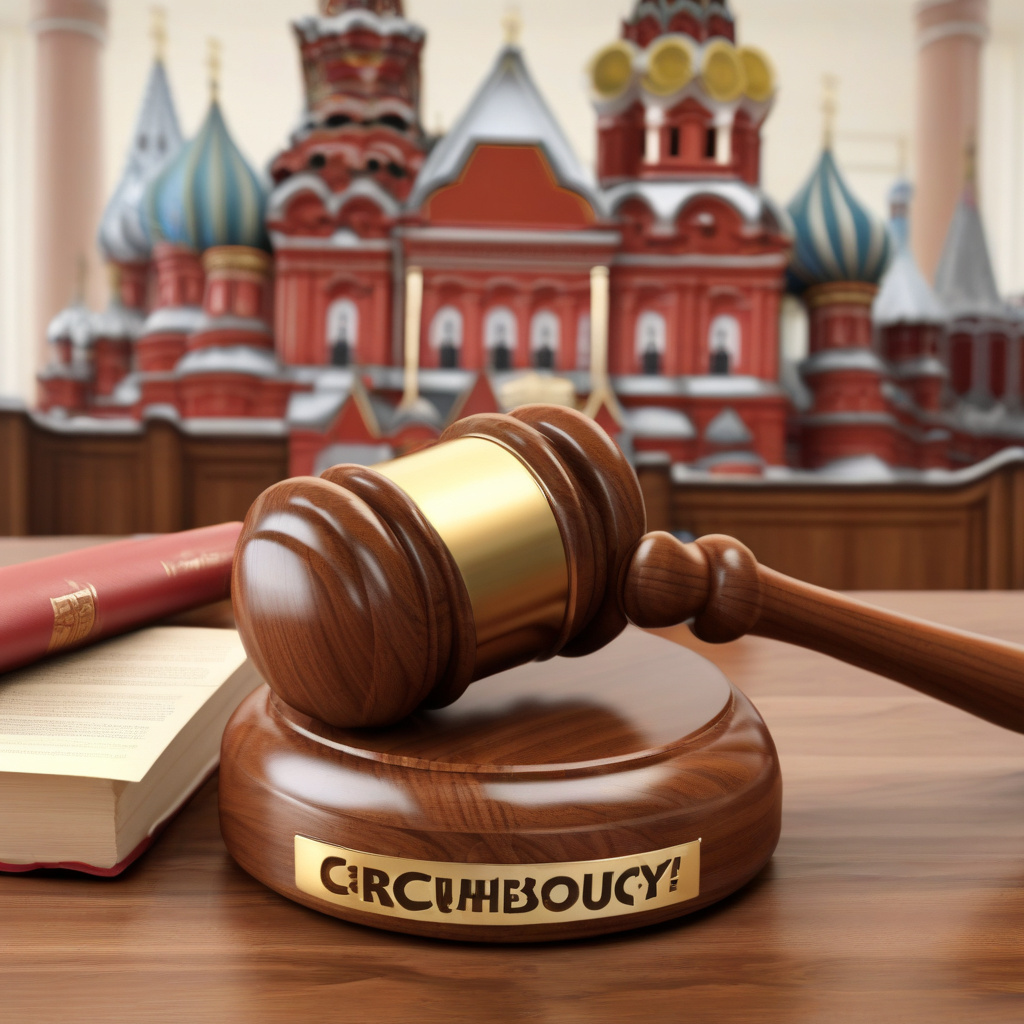Russia’s Proposal to Include Cryptocurrency Terms in Criminal Code: What it Means for Citizens and Legal Clarity
Russia is making headlines in the world of cryptocurrency as legal experts reveal plans to add specific terms related to digital assets in the country’s criminal code. While this move is aimed at bringing more clarity to the seizure process of cryptocurrencies, it also raises concerns about the protection of citizens’ rights in the ever-changing landscape of digital finance.
The proposed crypto law in Russia marks a significant step towards regulating the use of cryptocurrencies within the country. By including specific terms related to digital assets in the criminal code, authorities aim to provide a clear legal framework for dealing with issues such as crypto-related crimes, money laundering, and the seizure of digital assets.
Legal experts suggest that the inclusion of cryptocurrency terms in the criminal code will streamline the process of seizing digital assets in cases of illegal activities. Currently, the lack of specific regulations regarding cryptocurrencies has made it challenging for law enforcement agencies to handle such situations effectively. By defining terms related to digital assets in the criminal code, the Russian government hopes to bridge this gap and improve the efficiency of handling crypto-related crimes.
However, while the proposed crypto law may bring more clarity to the legal procedures surrounding cryptocurrencies, it also raises concerns about the protection of citizens’ rights. With the growing popularity of cryptocurrencies as a means of investment and transactions, ensuring that individuals’ rights are safeguarded becomes crucial.
One of the main concerns raised by legal experts is the potential impact of the new law on the privacy and security of cryptocurrency users. The inclusion of specific terms related to digital assets in the criminal code could give authorities broader powers to investigate and seize cryptocurrencies, raising questions about the protection of individuals’ privacy rights.
Moreover, there are concerns about how the proposed crypto law will impact the overall regulatory environment for cryptocurrencies in Russia. While bringing more clarity to the seizure process is essential, striking a balance between regulatory oversight and individual rights remains a challenge. Finding the right balance will be crucial in ensuring that the new law effectively addresses crypto-related crimes without infringing on citizens’ rights.
As Russia moves towards including cryptocurrency terms in its criminal code, stakeholders, including legal experts, government officials, and cryptocurrency enthusiasts, will closely monitor the developments. The implications of this new law extend beyond legal definitions; they touch on fundamental issues of privacy, security, and individual rights in the digital age.
In conclusion, Russia’s proposal to add cryptocurrency terms to the criminal code represents a significant milestone in the regulation of digital assets within the country. While the move is expected to bring more clarity to the seizure process of cryptocurrencies, it also raises important questions about protecting citizens’ rights in the rapidly evolving landscape of digital finance. Finding the right balance between regulatory oversight and individual rights will be key to ensuring that the new law effectively addresses crypto-related crimes while upholding privacy and security standards for cryptocurrency users.
#Russia, #Cryptocurrency, #CriminalCode, #LegalClarity, #CitizensRights
